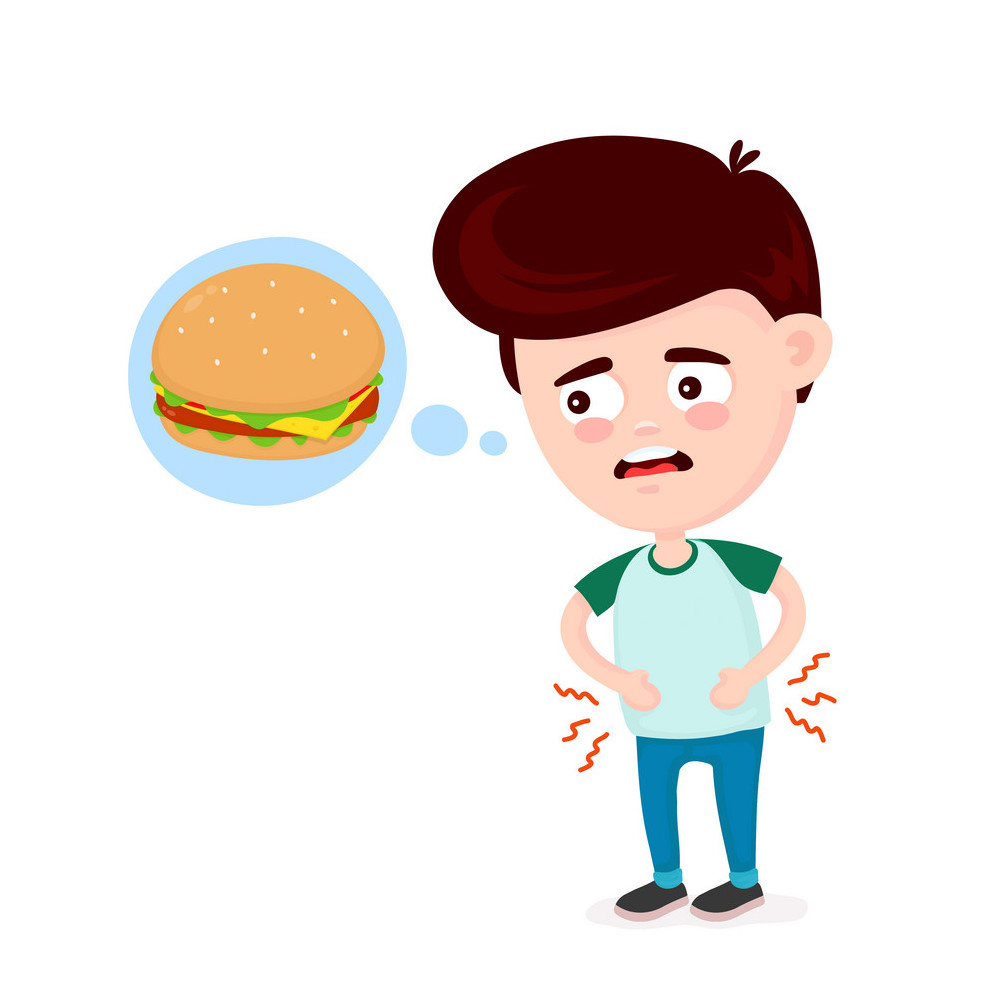
Defined
Appetite is a natural desire to satisfy a bodily need, especially for food.
Hunger: a feeling of discomfort or weakness caused by the lack of food, coupled with the desire to eat.
Hunger and appetite are synonymous with each other; however, in the human body, they are easily separable and independent of each other as well.
Hormones
The two major components that directly contribute to satiety and hunger are the hormones Leptin and Ghrelin. These two hormones are inversely related in their metabolic functions regarding appetite. The following are the major points for each hormone:
Leptin
- decreases appetite (decreases hunger)
- found in white adipose [fat] cells
- targets the hypothalamus (region of the brain that coordinates the unconscious bodily organs and functions)
- inducers: insulin, emotional stress
- inhibitors: short term fasting
- low leptin as observed with sleep loss and has a greater impact on appetite than high leptin levels, which are associated with leptin resistance
Ghrelin
- increases appetite (increases hunger)
- found in X cells of the stomach lining
- target lateral hypothalamus
- increases gastric motility (food breakdown), gastric acid
- inducers: hypoglycemia, low body weight
- inhibitors: stomach distension (gas/fluid accumulation beyond normal stomach and waist girth/bloating) (makes you feel full)
Keys to Balance
Weight loss clients often times have difficulty with their appetite due to irregular leptin levels generated by a “feedback loop.” In this case, caused by inflammation in the body. Inflammation clouds the brain from recognizing leptin levels. Since increased body fat correlates to increased leptin levels in the cells but the brain does not recognize them; thinking the body is starving, the brain requires the body to eat more to combat starvation but inherently increases fat gain (this is an example of a feedback loop). A dangerous cycle that leads to morbid obesity.
The hunger trigger hormone, ghrelin, is made when the stomach is empty. This hormone is high before you eat, and low after; therefore, in order to aid in weight loss, less ghrelin is ideal to curb the onset of hunger.
The balance of these two hormones is imperative to keeping the metabolism in line. There are a few ways to regulate these hormones on your own. Consuming inflammatory decreasing foods is the easiest and most efficient way. Take a look at this article from Harvard Medical School for a jump-start to reducing your body’s inflammation and take back control of your appetite.



